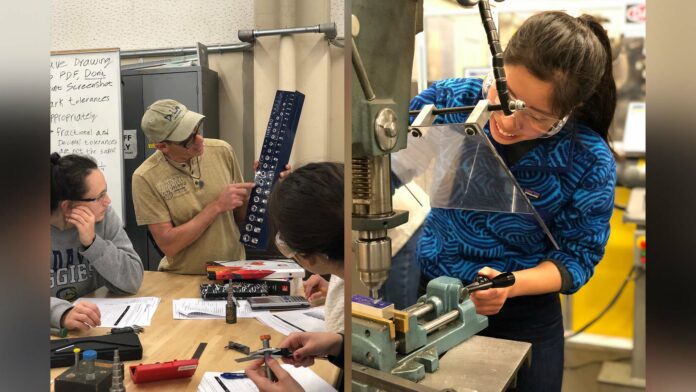From teaching to research projects, D-lab focuses on sustainability
When Dr. Kurt Kornbluth looks back on his time designing and building wheelchairs in Africa and Central America, he regards his work as only semi-successful. Although he built better wheelchairs, the project revealed an inherent flaw: He had not accounted for the societal changes that would be required to maintain the positive impact his work had made. Instead of getting discouraged, Kornbluth was inspired to integrate technology into society in a more meaningful way.
Kornbluth is now a professor in the department of biological and agricultural engineering as well as the founder and director of the UC Davis D-Lab. The D-Lab, founded in 2009, is Kornbluth’s realization of his goal. Kornbluth and his staff work with clients, both local and international, to develop low-cost, clean and efficient technologies that are uniquely situated within the client’s requirements and vision.
The D-Lab also maintains a strong educational component. D-Lab courses, typically offered quarterly, assemble cross-disciplinary student teams to create sustainable solutions for a real client, both in the planning and prototyping phases. The D-Lab teaches a methodology that guides students in research and integrates four lenses of sustainability: social, environmental, financial and technical.
Kornbluth’s courses are a type of research in and of themselves. Working with the dean of the College of Engineering, he is developing experimental courses for the Engineering Student Design Center and figuring out how to most effectively facilitate professional and hands-on learning experiences. Kornbluth developed these pilot courses over the past few years, with research focuses ranging from Zero Waste and Zero Net Energy to their latest collaboration: Art and Engineering.
The Art and Engineering course is the conceptual brainchild of Kornbluth and Luke Turner, the exhibition manager at the Jan Shrem and Maria Manetti Shrem Museum of Art. Both Kornbluth and Turner aim to reconcile two disciplines that are often seen as being in diametric opposition.
“Art foregrounds a dimension of criticality and social engagement that engineering projects do not necessarily require,” Turner said. “This art coefficient brings a surplus value to projects that engineers may not be trained to recognize or address.”
Projects commissioned by the Manetti Shrem Exhibition Department focus on sustainable exhibition design and an increasing push toward accessibility. One student team is exploring the use of natural or biodegradable exhibition furniture materials and adaptable modular design to reduce waste of furniture that traditionally must be custom-made for each exhibit.
Although the museum itself is designed to be highly accessible, students are also looking at how to make the exhibition experience for everyone. Possible directions include engineered pedestals that allow the artwork to be lowered, while keeping the piece out of harm’s way.
Another student is in the process of developing an “immersive tea lab experience” for the UC Davis Arboretum, using concepts of art, design and engineering to convert an RV into an accessible experience for all.
The class also incorporates art theory into “traditional” D-Lab projects that involve both local and international solutions to sustainability issues. One of these clients is the Student Farm, for which the D-Lab is conceptualizing plans for an electric tractor that is both quieter and more efficient. International projects include sustainable logging and waste management systems in the Democratic Republic of the Congo and Burkina Faso, respectively.
Outside of the course, the D-Lab plays a big role in the UC Davis zero net energy initiatives. Kornbluth is an author of “Big Idea: Sustainable Cities,” a plan wherein the UC Davis community serves as a microcosm of a city, and project-based student courses use sustainability research to solve campus energy problems.
Although other renditions of the D-Lab exist, the agricultural and energy research underway at UC Davis offers an opportunity to develop and prototype systems that translate particularly well into the real world, especially in developing countries.
Spring Quarter 2020 will see the continuation of the Art and Engineering course as “D-Lab II: Design, Build, and Test.” Students interested in the course or learning more about the D-Lab should reach out to the program manager, Abigail Edwards, at amedwards@ucdavis.edu.
Written by: Kat Hanrahan — science@theaggie.org




